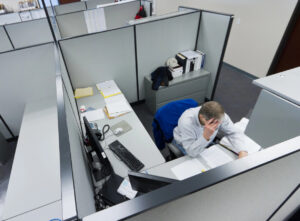The introduction of remote work has permanently changed how employees view work
LONDON, ENGLAND — The modern workforce continues to shift, adapt and evolve. What it means to work, and what that looks like, has irreversibly changed since the COVID-19 pandemic, no matter whether more archaic employers choose to cling to the past or not.

Amid the pandemic and afterward, more people were working remotely than ever before.
Official government statistics and data, as well as countless independent studies, have shown that more people began working remotely than ever thanks to the pandemic.
While sites like RemoteWorker.co.uk were committed to providing resources for remote workers and those seeking remote work from even before the pandemic, a major shift took place in the fallout from COVID-19.
By now, many employees have been working remotely from the start of their careers — including many who may have never previously expected to.
Further, dozens of employees continue to work remotely.
Meanwhile, the world of work has changed even for those who are still required to physically come into office — whatever that may look like.
Remote work creates new options
These employees and job seekers now have more options, knowing the popularity of remote work and their likely chance of finding a remote job in their desired field.

With the popularity of remote work came new options like increased flexibility, work-from-anywhere, and more competition amongst employers.
Arguably, this is one reason many continue to quit rather than comply with return-to-office mandates.
Even for those whose jobs cannot be completed remotely, fierce competition has made many offer more flexibility.
For instance, they may not be required to work the 9-5 that was considered the standard option in the pre-pandemic working world.
Rather, they may have the choice to start later in the day.
Similarly, many workers are now in various hybrid positions, with no two models being identical.
Some may be allowed to work from home a few days each week, while some may have more flexibility in hours on certain days.
In some instances, employers are now allowing staff to work from anywhere for several weeks every year.
A new definition of “working”

Remote work has broken the longstanding image of a white-collar office worker wearing a stiff suit or uniform and sitting in a bland cubicle for hours on end.
However, this new, shifting world of work also presents the perfect opportunity for the workforce itself to define what working means.
It also allows them to determine what working looks like, breaking the longstanding image of a white-collar office worker wearing a stiff suit or uniform and sitting in a bland cubicle for hours on end.
Commenting on this rare opportunity in history, James Scott, CEO of internal communications tool Thrive.App, said: “While the pandemic has undoubtedly been disruptive and problematic, it’s also opened a door.
“[It’s] a once-in-a-generation opportunity to redefine what work looks like today and for the future, and to align as much as possible employee demands with business requirements.”
Find the latest remote jobs in the UK via RemoteWorker.co.uk.












[…] news, stating, “This is fantastic for remote and hybrid workers, as well as for anyone who was eagerly awaiting the opportunity to join the remote […]
[…] businesses struggling with recruitment should “stipulate in job adverts that jobs can be done flexibly” as well as “take a proactive approach to widening your talent […]
[…] the statement underscored how businesses will also benefit as a result, as they will reap “higher productivity and staff retention as a […]
[…] or valued by making the often gruelling trek into office, and it’s clear why remote work is still the golden standard for UK […]